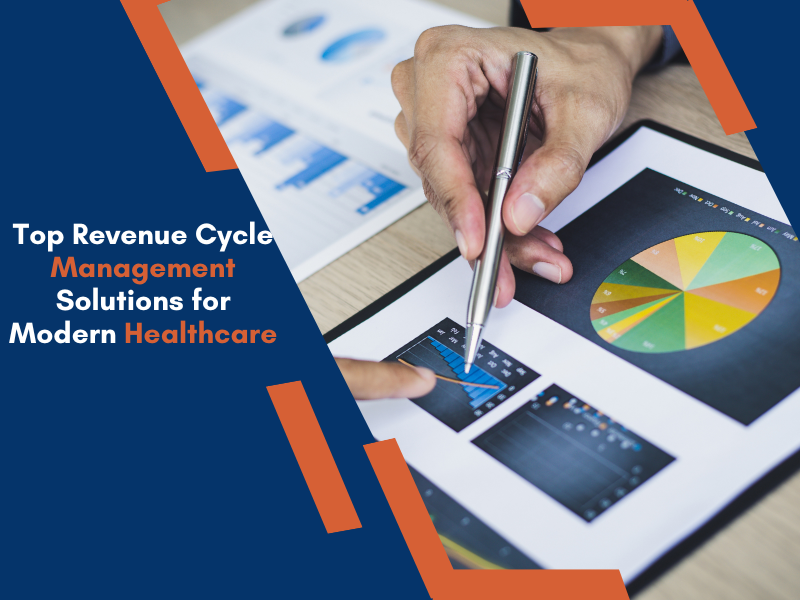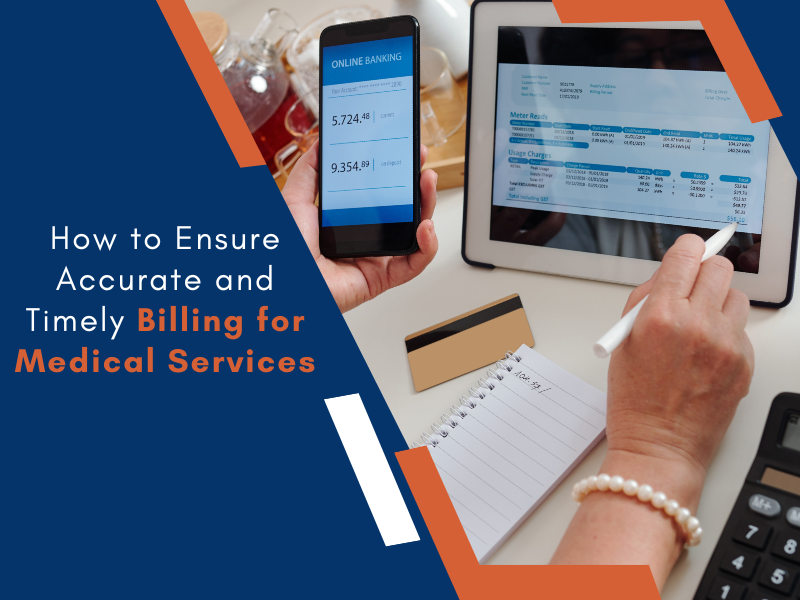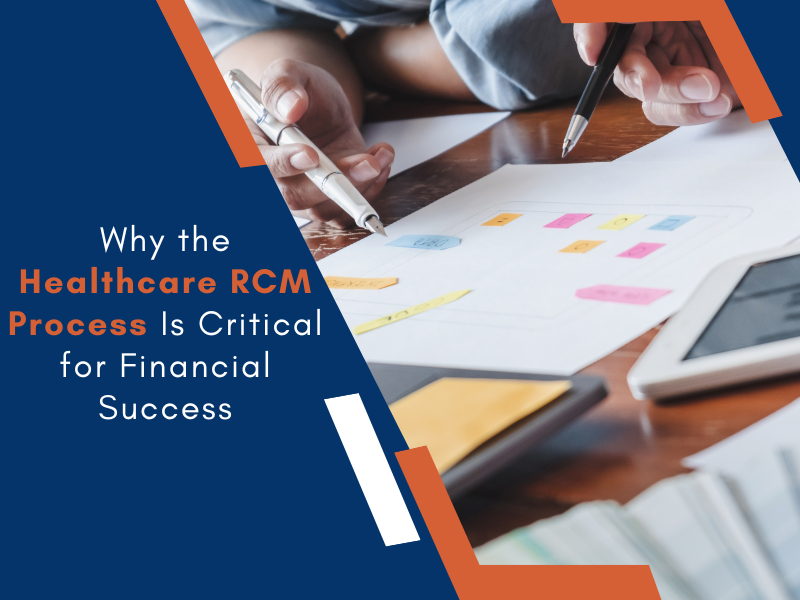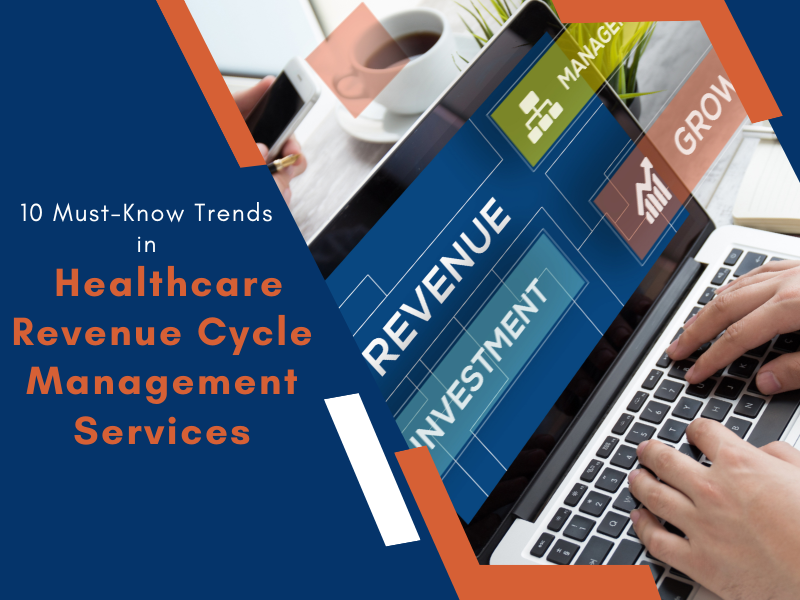The healthcare industry is undergoing a transformative shift, with increased focus on efficiency, compliance, and patient satisfaction. Central to this transformation is revenue cycle management solutions, which ensure smooth financial operations for healthcare providers. These solutions streamline processes like patient registration, claims processing, and reimbursement to optimize cash flow and reduce administrative burdens.
In this blog, we will explore the top revenue cycle management solutions tailored for modern healthcare. By leveraging these solutions, healthcare organizations can enhance operational efficiency, reduce errors, and improve overall revenue outcomes.
What Are Revenue Cycle Management Solutions?
Revenue cycle management (RCM) refers to the financial process that healthcare providers use to manage administrative and clinical functions related to patient service revenue. It begins with scheduling appointments and ends with the collection of payments.
RCM solutions are designed to simplify this intricate process. They combine technology, best practices, and expertise to manage claims processing, coding, billing, and reimbursement seamlessly. These solutions help healthcare organizations address the complexities of billing and reduce denials, enabling providers to focus more on patient care.
Key Features of Modern RCM Solutions
To meet the demands of the evolving healthcare landscape, modern RCM solutions incorporate several advanced features:
1. Automated Claims Processing
Automating claims submissions significantly reduces human errors, ensuring quicker reimbursement. Modern RCM tools can track claims in real-time, highlighting discrepancies that may lead to denials.
2. Advanced Data Analytics
Data analytics provides valuable insights into financial performance. By analyzing patterns in denied claims, providers can identify root causes and take corrective actions to prevent recurring issues.
3. Integration with Electronic Health Records (EHR)
Seamless integration with EHR systems ensures accurate transfer of patient data, reducing manual data entry and associated errors. This integration improves overall efficiency and compliance.
4. Patient-Centric Billing
Transparency in billing has become essential for enhancing patient satisfaction. RCM solutions with patient portals enable individuals to view and pay bills online, ensuring a smoother experience.
5. Compliance Management
Healthcare regulations are complex and constantly evolving. Modern RCM solutions are equipped with tools to ensure compliance with standards like HIPAA, reducing the risk of penalties.
Top Revenue Cycle Management Solutions in 2024
1. End-to-End RCM Services
Providers offering end-to-end RCM services handle the entire revenue cycle, from patient registration to payment posting. These services eliminate the need for multiple vendors and provide a unified approach to revenue cycle management.
2. AI-Powered RCM Tools
Artificial intelligence (AI) is transforming the RCM landscape. AI-powered tools can predict claim denials, automate coding, and optimize scheduling, saving time and improving accuracy.
3. Cloud-Based RCM Solutions
Cloud technology offers scalability and flexibility for healthcare providers. Cloud-based RCM solutions ensure secure data storage, remote accessibility, and real-time updates, making them ideal for modern practices.
4. Outsourced RCM Services
Outsourcing RCM processes allows healthcare providers to focus on patient care while experts manage the financial operations. This approach reduces overhead costs and ensures compliance with industry standards.
5. Patient Engagement Platforms
RCM solutions that include patient engagement platforms help providers maintain better communication with their patients. Features like online bill payment, appointment reminders, and insurance verification enhance the patient experience and streamline administrative tasks.
Benefits of Implementing RCM Solutions
1. Reduced Claim Denials
RCM solutions use predictive analytics to identify potential issues in claims before submission, reducing the likelihood of denials.
2. Improved Cash Flow
By automating billing processes and ensuring timely reimbursement, RCM solutions enhance cash flow, enabling providers to allocate resources more effectively.
3. Enhanced Operational Efficiency
Automated workflows and integrated systems reduce manual tasks, allowing staff to focus on more critical responsibilities.
4. Better Compliance and Security
Modern RCM solutions ensure compliance with healthcare regulations and provide robust data security measures to protect patient information.
5. Increased Patient Satisfaction
Transparent billing processes and patient portals contribute to a positive patient experience, which is critical in today’s patient-centered healthcare environment.
Emerging Trends in RCM Solutions
1. Focus on Value-Based Care
The shift from fee-for-service to value-based care requires RCM solutions to adapt. These solutions are now designed to track and report on quality metrics, aligning with new payment models.
2. Use of Predictive Analytics
Predictive analytics is becoming a cornerstone of modern RCM solutions. By analyzing historical data, these tools predict trends and provide actionable insights to optimize revenue management.
3. Enhanced Patient Financial Engagement
As out-of-pocket healthcare costs rise, patient financial engagement tools have become crucial. These tools ensure patients are informed about their financial responsibilities, reducing confusion and increasing payment rates.
4. Interoperability
Healthcare organizations are investing in RCM solutions that can seamlessly integrate with other systems, ensuring smooth data flow across platforms.
How to Choose the Right RCM Solution
When selecting an RCM solution, healthcare providers should consider the following factors:
1. Scalability
Choose a solution that can grow with your organization, accommodating increased patient volumes and evolving financial requirements.
2. User-Friendly Interface
A complex system can hinder adoption. Look for RCM tools that are intuitive and easy to navigate.
3. Customization Options
Every healthcare organization has unique needs. Ensure the RCM solution can be customized to fit your specific workflows and goals.
4. Proven Track Record
Opt for a provider with a history of success in implementing RCM solutions. Reviews, case studies, and client testimonials can offer valuable insights.
5. Compliance and Security Features
Verify that the solution adheres to regulatory standards and includes robust security measures to protect patient data.
Conclusion: Transforming Healthcare with Apaana Healthcare
Revenue cycle management solutions play a critical role in streamlining financial processes, enhancing operational efficiency, and improving patient satisfaction. By adopting modern RCM solutions, healthcare providers can stay ahead in an increasingly competitive landscape.
At Apaana Healthcare, we are committed to delivering operational excellence with our global healthcare management solutions. We specialize in outsourced services tailored for health plans, including:
- Member enrollment
- Claims administration
- Medical billing & coding
- Provider engagement
Our solutions are designed to ensure cost-effectiveness while maximizing financial outcomes for your organization. Partner with us to elevate your revenue cycle processes and focus on what truly matters: delivering exceptional patient care.
Explore how Apaana Healthcare can transform your revenue cycle management by contacting us today!
By choosing the right revenue cycle management solutions, healthcare providers can create a robust financial foundation, paving the way for sustainable growth and enhanced patient outcomes.





